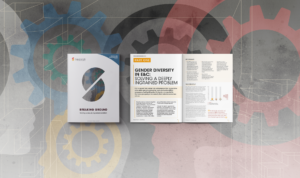It seems that the rate of change in the energy sector is taking people by surprise.
Given the falling costs of technology and availability of new renewables technologies, so much is being achieved in pushing the boundaries of this industry.
Renewables are becoming more mainstream and are no longer an OECD luxury. Indeed, the days of ideological investment have been replaced by commercial money; as witnessed by the recent 50% sale of Hornsea 1 for £4.46 billion – the largest single project financing in the global renewables sector to date. So, size and scale can only increase.
Meanwhile we’re witnessing the emergence of other new technologies and trends which could become the disruptors of the future, for example; flow & thermal batteries, energy storage, mobility electrification and digital.
At the consumer level, the appetite for green energy has increased exponentially driven by rational and emotional motivators in the face of climate change.
And let’s not forget greenwashing, which has undoubtedly played a dominant role in marketing campaigns across all industries, not just the energy sector.
That said, the signs are that the green reputation of the energy sector may be running ahead of the reality. And for a sector that is changing faster today than any time in its history, this brings reputational risks – where more is promised that can actually be delivered. There’s a gap between what is desirable and that which is feasible, affordable and profitable – which calls for new roadmaps and nimble navigators (BCG).
So, what are the organisational implications for business leaders and investors?
- There is no doubt that there will be winners and losers in developing new technologies and their relevant applications. The first mover may not reap the benefits of those who wait for it to become more proven, but in doing so could they risk losing market share?
- Renewables and more traditional hydrocarbon activities are very different in nature. This gives rise to questions such as whether they should be integrated or run as separate businesses. For certain, issues of corporate agility will be tested.
- Interestingly a number of the major International Oil Companies (IOC) embrace a hybrid strategy of renewables and gas/oil. But renewables profitability is much less than hydrocarbons. So how will this be viewed by institutional investors who are unlikely to be happy with lower dividends?
- Can more be done to address urgent national issues in terms of balancing security of supply, low cost and speed of decarbonisation? And why are we lacking consistent well thought through energy policies? For example, despite setting out the right direction for the path towards renewables, EU’s 2030 ‘Clean Energy package’s proposed renewable energy and energy efficiency targets are seen as way too modest.
With complex challenges as these, it is the mindset of the industry that needs to change.
Will your organisation be the torchbearer?
How will you act to nurture new emerging technologies that will disrupt the future?
And given the falling costs of technology and availability of new renewables technologies, and the urgency of a tight fit with the national climate commitments, what can be done to address the lack of speed and depth of policy – for sustainable change?
We’d be fascinated to hear what you think.




